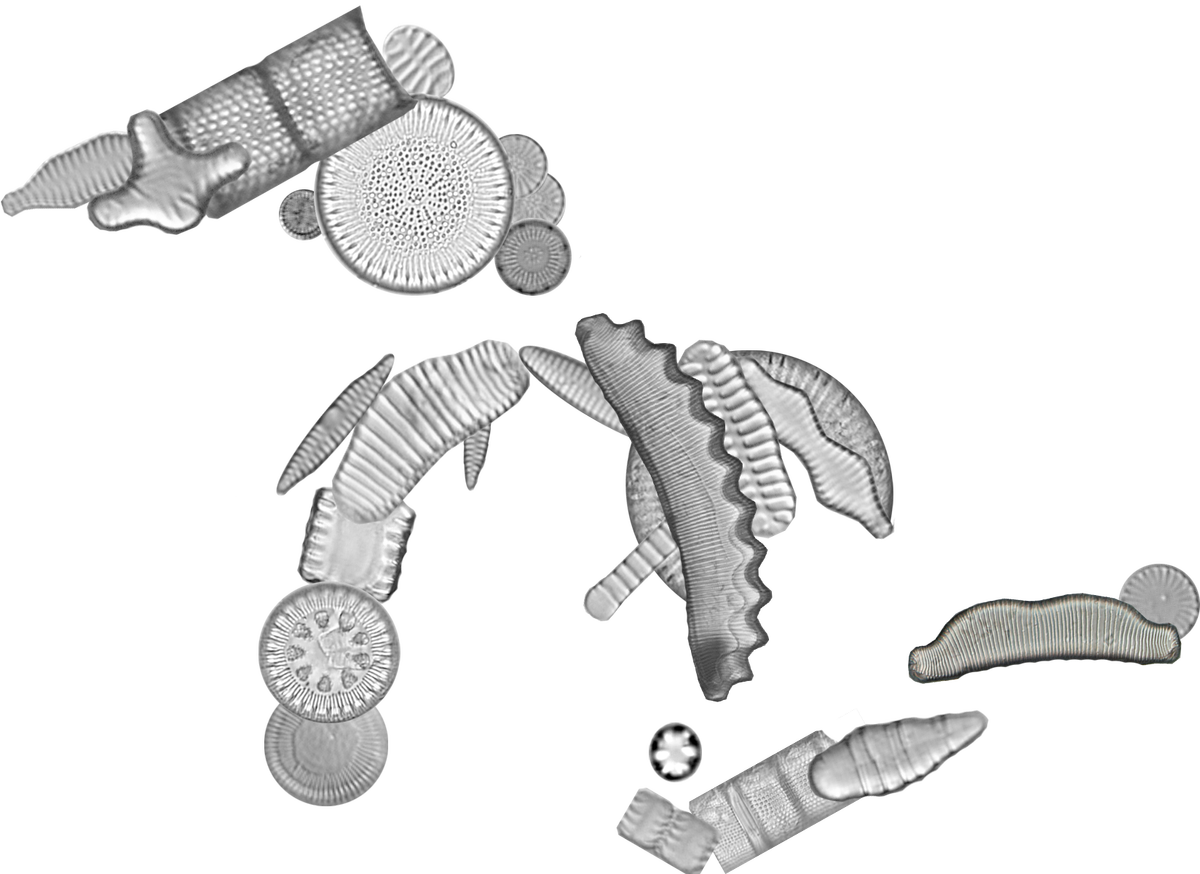We know this to be true: Recent climate change is impacting the ecosystems of the Great Lakes. On Lake Superior especially, the season of ice cover is shorter and the water is warmer. Predictive modeling to date has shown that those changes could impact the organisms in the water.
Now we see that, indeed, they do.
NRRI scientists have the first known evidence that the physical changes resulting from a warming planet are impacting the biology in the Great Lakes. And around the world, scientists are seeing the same thing. The smoking gun is a remarkable rise in Cyclotella – a round, microscopic species of diatom algae – over the last few decades.
Euan Reavie, NRRI’s paleolimnology specialist, has been leading a team to gather historical sediment data on all of the Great Lakes since 2011. He is surprised by how conclusively the data show the effect of climate change on the tiniest critters on the aquatic food chain.
“And we know it is climate warming, and not all the other stressors like invasive species and nutrient loading,” said Reavie. “Cyclotella are also increasing in arctic and boreal lakes worldwide, lakes that have been otherwise untouched by human activity.”
Basically, it’s the first evidence that the living organisms in the Great Lakes are being reorganized by the warming planet.
It makes sense that changes are first being noted in the smallest of the biological life in the lakes because they are the most sensitive. That sensitivity makes diatom algae excellent indicators of environmental change, which is why Reavie studies them.
“I never thought I’d see this in the Great Lakes because of all the other stuff going on,” he said, referring to the destructive effects of invasive species and nutrient pollution, especially on Lakes Huron, Michigan and Erie. “Trying to keep up with the environmental insults on the lakes, and ways to deal with them, is a constantly moving target. We’re never able to catch up.”
Reavie’s next questions are: How important is this increase in Cyclotella? Is it a problem? Should we care? The answers depend on whether the native species will tolerate this change.
“We don’t really know yet if it has food web implications, but I hypothesize that the tiny grazers that eat algae will need to adapt to these changes or will die off, which can eventually make its way up food chains,” he said. “In time, as the changes increase in magnitude, will fish ultimately be affected?”
